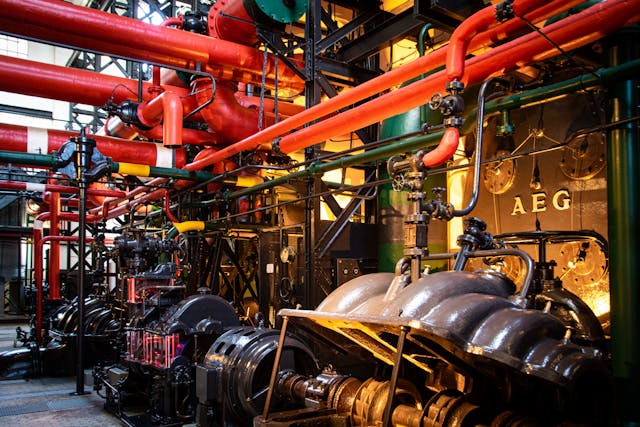Have you ever come across an extensive outdoor project that seems beyond the realm of your trusty spade and pickaxe? Do you feel overwhelmed by the sheer volume of soil to move? If yes, you might need an upgrade in your toolkit – a mini excavator. But how do you decide which one is the best? This formidable guide is specially tailored to explore the ins and outs of mini excavators, so you can make an informed purchase.
From extracting tree stumps, digging trenches, to excavating foundations, mini excavators have revolutionized the world of landscaping and construction. Despite their compact sizes, these mighty machines pack power, making them the preferred choice for many homeowners and small contractors. Here, we’ll dive into the key factors to scrutinize, including its types, sizes, features, and everything in between, before you make your decision.
An excavator, no matter how small, is a significant investment. Hence, understanding what to look for when buying a mini excavator is crucial. This guide sets out to demystify the process, beginning with a comprehensive rundown of exactly what a mini excavator is and why you might need one, followed by an exploration of the essential features to look out for – and those to avoid. We’ll top it off with some handy tips on maximizing your mini excavator’s potential in and around your space.
What is a Mini Excavator and Why do You Need One?
The mini excavator, also known as a compact excavator, is a versatile machine designed for excavation tasks in small spaces. In terms of size, they usually range between 1 ton to 10 tons, a stark comparison to their much larger counterparts that can weigh up to 200 tons. Their compact size allows them to navigate the tightest corners of urban constructions, gardens, or small-scale excavations, making them an indispensable addition to your arsenal.
Yet, the mini excavator’s role extends beyond just excavation. Equipped with various attachments like breakers, augers, or buckets, this powerful machine can perform a range of tasks, including demolishing small structures, digging trenches, or even drilling holes. They’re a cost-effective solution as they eliminate the need for myriad tools, packing it all into one compact, yet robust machine.
However, bear in mind that the mini excavator isn’t an ideal machine for deep excavation (more than 10 feet) and heavy-duty tasks, due to limitations in reach and power. Nevertheless, for homeowners or contractors aiming for maximum functionality with minimum footprint, the mini excavator could be a worthy investment.
Factors to Consider: Size & Weight
Your perfect mini excavator for sale, it’s essential to consider the size and weight of your machine. Whether you’re operating in a small backyard or a construction site, your excavator’s size will dictate the scope of your project and the ease of manoeuvrability.
Ultra-compact excavators, often weighing less than 1 ton, are ideal for interiors and small-scale landscaping projects due to their ability to pass through standard doors. On the other hand, heavier mini excavators might provide more digging depth and lifting capabilities, but they also require larger transportation vehicles and stricter safety regulations.
Sure, the size and weight of the mini excavator directly impact your project but remember – balance is key. A machine too small may lack the required power, while an overly large one might struggle to manoeuvre around the site. Consider your project requirements and choose a mini excavator for sale that strikes the perfect balance.
Key Features to Look Out For
In the world of mini excavators, few things determine its effectiveness and usability than its features. Certain key features like the hydraulic system, undercarriage, digging depth, and bucket capacity significantly influence the machine’s performance and durability.
Attachment versatility is a crucial feature too, as it enhances the multi-functionality of the machine. Ensure a quick attachment system for spontaneous switching between tasks. Another feature you should not overlook is cabin comfort – an ergonomically designed cabin with safety features, easy-to-use controls, and good visibility can make a difference to your operating experience.
However, bear in mind, additional features usually come with a higher price tag. So, only prioritize the necessities that align with your project needs and avoid falling for extra features that offer little to no practical benefits.
Understanding the Operational Costs
Cost is undeniably a significant factor to consider when purchasing a mini excavator. However, it’s not just about the machine’s initial purchase price; it would be best if you also considered the operational and maintenance costs.
Fuel efficiency of the excavator, the cost of spare parts, and the frequency of servicing directly influence the operational costs. Therefore, opting for an inexpensive model might result in higher long-term costs. Similarly, investing in a reputable brand with high-quality parts might save you from frequent machine downtimes and expensive part replacements.
Buying vs. Renting: Making the Right Choice
The choice of buying versus renting a mini excavator boil down to your project’s nature and duration. If you’re working on a long-term project or frequently need an excavator, purchasing might be more cost-effective in the long run. Owning a mini excavator gives you the freedom to customize the machine according to your needs and work at your own pace.
However, if you only need a mini excavator for a single project or lack the resources for maintenance and storage, renting might be a better option. A word of caution: when renting, examine the machine thoroughly to avoid hidden damages, which can cause inconvenient breakdowns on-site.
Conclusion:
Purchasing a mini excavator requires a combination of considerations – understanding your project’s requirements, analysing the machine’s features, size, weight, considering the ongoing operational costs, and finally, deciding whether to buy or rent. This guide provides a roadmap to traverse the intricate landscape of purchasing a mini excavator, guiding you to the perfect match for your needs.
Remember, the best mini excavator is not necessarily the most expensive or feature-rich, but the one that best fits your specific project needs while ensuring cost-effectiveness, efficiency, and usability. In research Andin excavators, informed decisions trump impulsive purchases – so take your time, do your research, and let the strength of knowledge guide your investment.










